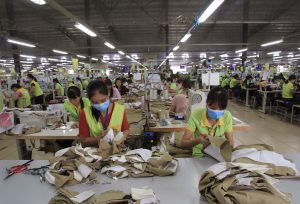Vietnam is a one-party state with a single, state-led union federation, the Vietnam General Confederation of Labor (VGCL). Over the past couple of years, however, a number of English language commentators have claimed that Vietnam has now legalized independent trade unions.
In 2019, just after the National Assembly approved a new Labor Code, Viet Nam News, the main English language newspaper of the state’s Vietnam News Agency, published an article announcing that the country was “allowing independent unions.” In May 2021, IndustriALL, a Global Union Federation to which three of the VGCL’s sectoral union federations are affiliated, asserted that “independent trade unions are allowed to be formed at company level.” And in November 2021, a pro-government English language vlogger stated that Vietnam “passed a law last year allowing independent unions.” One could, then, be forgiven for thinking that independent trade unions that do not have to affiliate with the VGCL are now allowed in Vietnam.
The problem with these claims is that Vietnam has not allowed independent unions. Indeed, the claim only ever seems to be made by people writing in English; Vietnamese language media rarely, if ever, declare that independent trade unions exist.
There have been some changes to freedom of association rights. In November 2019, the National Assembly passed a new Labor Code, which became law in January 2021. Among a number of other changes, it allowed, for the first time, workers to form Worker Organizations (WOs) not affiliated to the VGCL. But to claim that WOs are independent unions is a significant misinterpretation (or perhaps in some cases a deliberate misrepresentation). They are not unions. WOs are only allowed to be formed at the individual enterprise level and are more limited in what they can do compared to unions. Unions, on the other hand, are part of the VGCL and therefore embedded in the countrywide structures of the Confederation. There are separate laws regulating each type of organization; the Trade Union Law regulates unions, while WOs fall under one chapter of the 2019 Labor Code.
There were those who were optimistic about what the reforms could bring in terms of labor representation, and those, like myself, who were much more skeptical. In practice though, up until now, not much has happened at all.

































